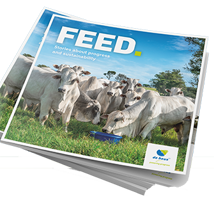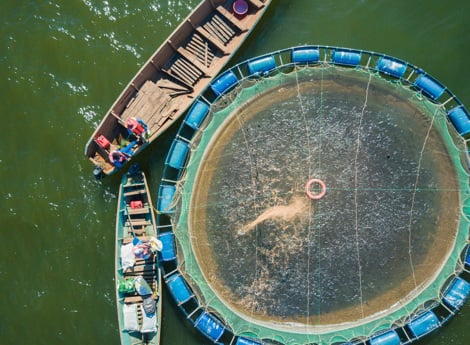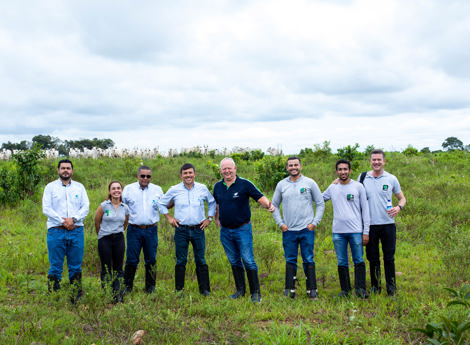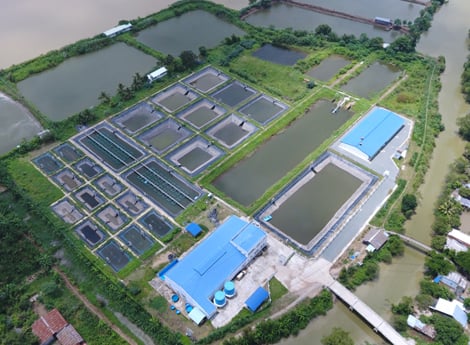De Heus Business Principles: Our compass for acting with integrity
Rules can be useful. An established set of norms, values and principles which form the basis for how people act in public and in a social context. Essentials for solid teamwork and successful partnerships. But what if your colleague or chain partner is accustomed to different norms, values and principles?

De Heus introduced its Business Principles to give De Heus employees a compass to navigate in the grey areas between legislation and company ethics. This is the domain of Sanna Jordens, Group Manager Integrity & Compliance at De Heus. “Compliance means adhering to laws and regulations. Integrity is a personal quality that goes beyond compliance. Within De Heus, acting with integrity means decision-making aligned with our Business Principles, regardless of the context someone is in.”
Why are clear definitions of compliance and integrity so important for a company like De Heus?
“In recent decades, De Heus has experienced tremendous international expansion. From doing regional business in the Netherlands to producing in over 20 countries and exporting to over 75 countries throughout Europe, Middle- East, Africa, Asia and South America. We encounter many different cultural norms and values, but also varying regulations and legal procedures. In daily practice, this means that our employees can come across grey areas where something might be legally permitted within national borders but does not align with De Heus’ global Business Principles. This can create complex situations, where different stakes intersect. Commercial purposes, ethical behaviour and legislation, for example.”
Learn more about our global sustainability approach
Discover our Responsible Feeding ProgrammeAs Group Manager Integrity & Compliance, what are your main focus points?
“My main priority is to cultivate a culture in which every De Heus employee is empowered to act with integrity and make decisions that align with our Business Principles. Moreover, if they are unsure whether business integrity is still intact, we want them to feel confident and comfortable to ask their manager or integrity officer for help. Whether it concerns environmental issues or human rights, we must always ask ourselves and each other: are we doing the right thing right now? Are we doing enough by complying with local legislation, or should we do more based on our group-wide Business Principles? The tone at the top, setting the example and action is central to the overall ethical environment of De Heus. Leadership within De Heus must give the right example, explain compliance rules and provide employees with guidance. Together with our country integrity ambassadors, I put our Business Principles on the agenda at our business units via training sessions, guidelines and our Supplier Code of Conduct. Our new Speak Up programme will also play an important role.”
You mention the Supplier Code of Conduct. Could you elaborate on that?
“As an actor in the food chain, De Heus has a shared responsibility to ensure proper business practices in our chain. Because we believe it’s important, but also because our stakeholders expect this from us. Our Supplier Code of Conduct is an extension of our Business Principles. It enlists our suppliers in upholding these same principles and encourages them to make choices that contribute to the sustainable development of our value chain. This includes ethical business, good governance and human rights, but also environmental issues. Our Responsible Feeding programme is based on the same values as embodied in our Supplier Code of Conduct. Since its introduction in 2021, over 60 percent of our suppliers worldwide have already signed our Code of Conduct and we are adding new suppliers every day.”
Creating long-term value
Learn more abour our Supplier Code of ConductWith the Responsible Feeding programme, De Heus operates on the intersection between integrity and compliance and sustainability. As the company’s sustainability ambitions continue to grow, how will De Heus engage its chain partners?
“It all comes down to trust and transparency. Every actor in our value chain must invest in sustainability. This transition takes time. For De Heus, but also for our chain partners. In order to tackle the growing challenges associated with the sustainable development of our chain, engaging in open and honest dialogue must become part of our company culture and the way we work. To give an example: starting in 2025, we will only use sustainable soy and palm. Which is why this year, we use our Supplier Code of Conduct to engage our current suppliers with our sustainability ambitions and hopefully convince them to support us in our ambition and make more sustainable choices.”
Putting Business Principles into practice
When we start activities in a new country, an absolute precondition is doing it in a responsible manner. This means creating value for our customers, chain partners and local communities, but also aligning our activities with our Business Principles. Read more about our approach for starting a new business unit in Ivory Coast.
Read moreFEED. Magazine
In this magazine, we share a selection of stories about progress and sustainability from De Heus business units all over the world. We hope that these stories will inspire you







